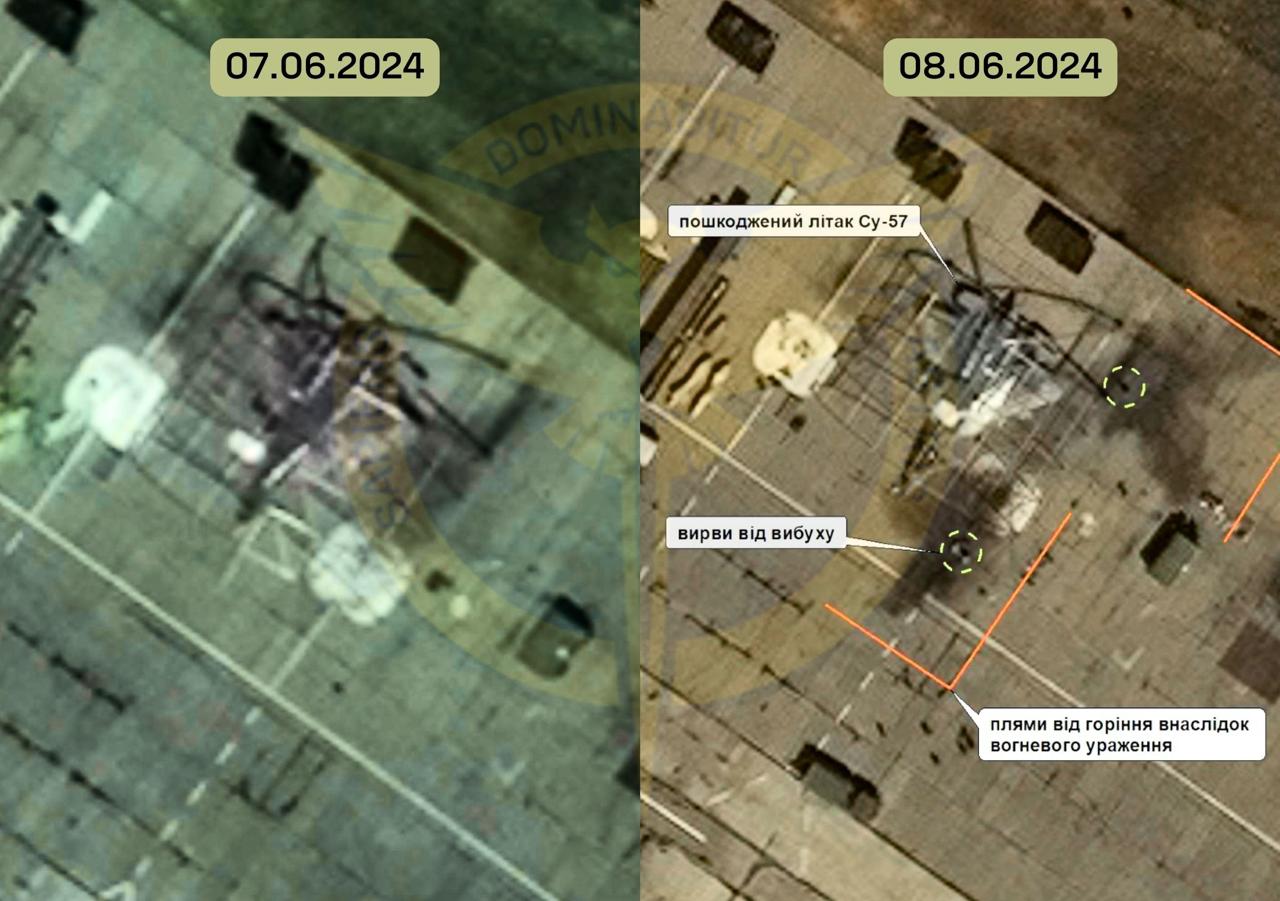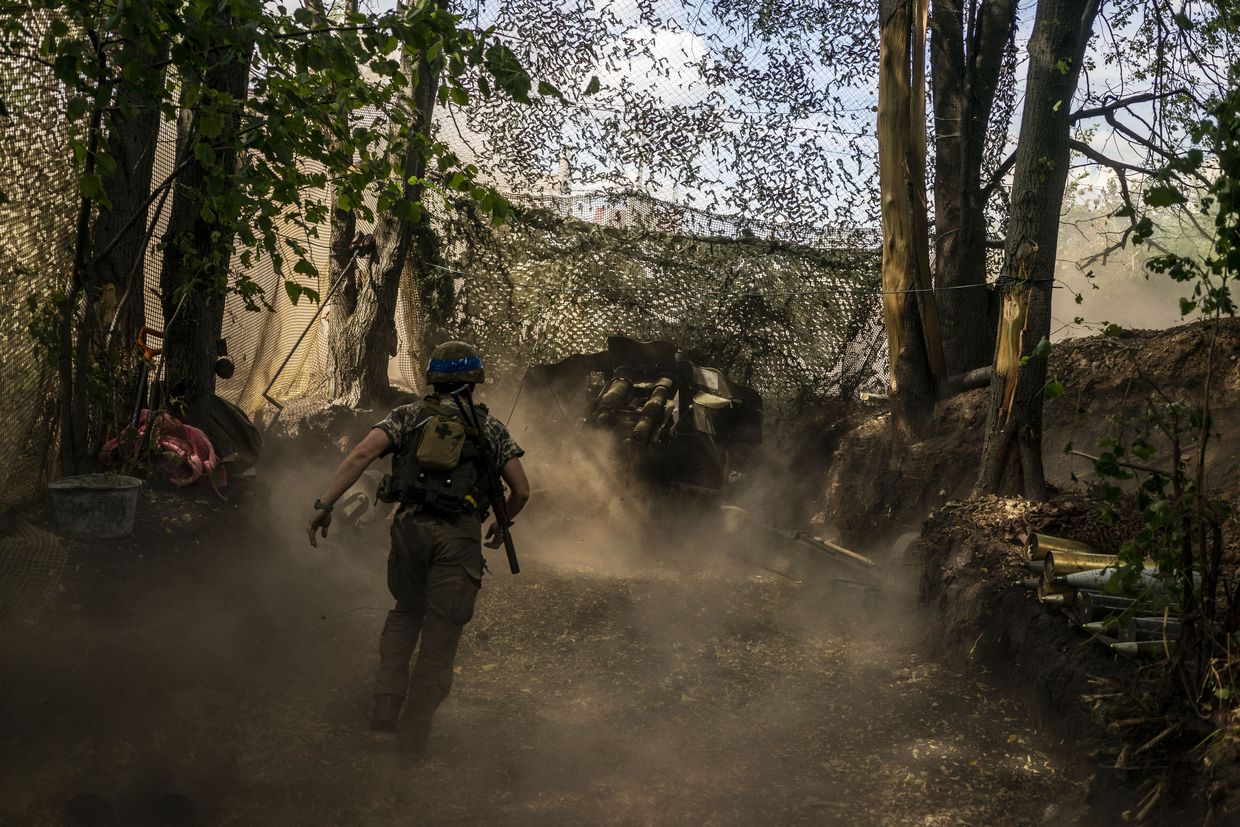Russian assault on Kharkiv 'stalled out' as Ukrainians fire across border, Sullivan says.
Support independent journalism in Ukraine. Join us in this fight.
Become a member Support us just onceRussia's offensive against Kharkiv Oblast is losing momentum and has "stalled out" as Ukrainian forces strike targets across the border with U.S.-provided weapons, U.S. National Security Advisor Jake Sullivan said in an interview with CBS News on June 9. Reports emerged early in June that Ukraine had used U.S.-supplied weapons to strike targets inside Russia for the first time, days after Washington allowed Kyiv to use some American weapons to strike inside Russia across the border from Kharkiv and Sumy oblasts.
Asked if Washington's authorization had made an impact on the battlefield, Sullivan pointed to the lack of Russian gains in Kharkiv Oblast over the past few days. "(O)ne thing I will point out is that the momentum of (Russia's) operation in Kharkiv has stalled out," Sullivan said. "Now, Kharkiv is still under threat, but the Russians have not been able to make material progress on the ground in recent days in that area."
Sullivan called the decision to allow Ukraine to use U.S. arms to strike nearby Russian positions across the border "common sense." "What was happening up around Kharkiv, which was new just in the last couple of months, was a Russian offensive where they were moving from one side of the border directly to the other side of the border, and it simply didn't make sense not to allow the Ukrainians to fire across that border, to hit Russian guns and emplacements that were firing at the Ukrainians," he said.
Ukraine hits Russian Su-57 jet for first time, military intelligence says The aircraft was reportedly damaged after a strike on the Akhtubinsk airfield in the Astrakhan region in southern Russia, 589 kilometers from the front line.

Moscow launched a new offensive on May 10 against Kharkiv Oblast.
While the Ukrainian military said it has managed to largely stabilize the situation, Russia has continued to launch attacks at the city of Kharkiv and surrounding areas. Sullivan said the U.S. would continue supporting the Ukrainian military's right to defend Kharkiv Oblast. "(T)he United States will continue to support Ukraine in holding the line and pushing back against the aggressing Russian forces," he said.
U.S. President Joe Biden told ABC News on June 6 that Washington's authorization came with limitations, and did not mean Ukraine had clearance to carry out long-range strikes on Russian targets with weapons provided by the U.S. "We're not authorizing strikes 200 miles into Russia and we're not authorizing strikes on Moscow, on the Kremlin," Biden said.
In response to Washington's decision to allow Ukraine to strike across the border near Kharkiv Oblast, Russian President Vladimir Putin said on June 5 that Moscow might begin supplying weapons to nations with permission to strike Western targets. Pranay Vaddi, the White House's senior director for arms control, then said on June 7 that the U.S. may have to increase its deployment of strategic nuclear weapons amid growing threats from China, Russia, and other adversaries. Sullivan told CBS News that while the U.S. is "concerned" about the growing nuclear capabilities of those nations, arms control talks with China have shown promise in recent months.
"China has showed a greater willingness, not a lower willingness to engage with us on questions related to proliferation and arms control," Sullivan said.
"Those are nascent conversations. ... (I)t's the beginning of a dialogue."
Ukraine war latest: Zelensky says Russia's Kharkiv offensive failed; Ukraine hits Russian Su-57 aircraft for first time
Key developments on June 8, 9: * Zelensky: Russia failed to fulfill its Kharkiv operation * Military intelligence: Ukraine hits Russian Su-57 jet for first time * Collaborator ex-mayor of Kupiansk in 'critical condition' after assassination attempt in Russia, military intelligence says * Russia...
